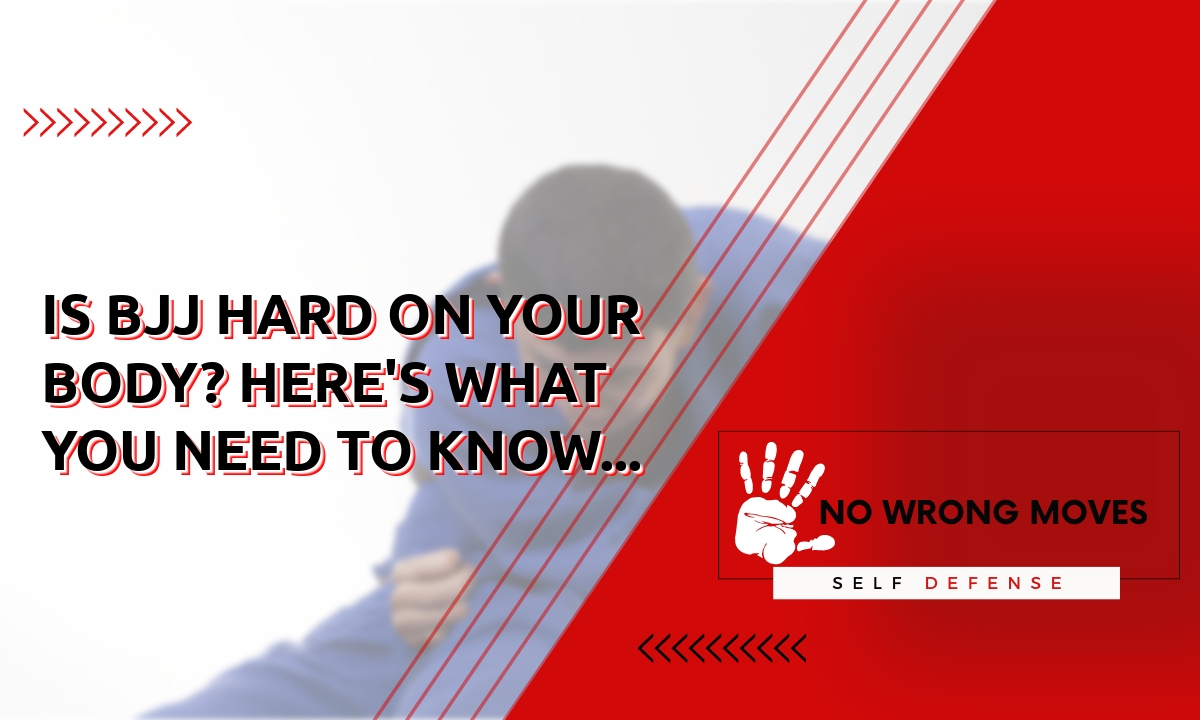
BJJ is one of the best martial arts out there, and you're unlikely to find people who will dispute that. It's incredible for self-defense, makes for a wonderful full-body workout, and can teach you a ton of wonderful lessons that will be useful not just in the dojo but also in real life.
But all of these benefits come with a cost, particularly on your body. Here, we'll be looking at just how tough BJJ can be, why that is, and what you'll need to keep in mind to make it easier.
What is Brazilian jiu-jitsu?
Founded by members of the Gracie family in 1925, BJJ is particularly noteworthy among martial arts because it allows a smaller fighter to defeat a larger, more powerful one. To this end, it emphasizes technique and skill rather than sheer strength.
As you can probably guess, this premise has cemented its position as one of the premier martial arts for self-defense.
BJJ also puts key focus on drilling and mastery. It can be a bit slow to progress here, especially since your instructors will always prioritize your safety, but you can expect that what you learn will always stick with you and will be useful in many combat situations.
As a fighting style, BJJ focuses on the ground, allowing practitioners to win most engagements despite paying secondary consideration to their opponent's strength, provided they can transfer fights to the ground.
Is BJJ Hard On Your Body?

BJJ is notoriously difficult on the body. There's really no way to sugarcoat it. If you're looking into studying this martial art, then be prepared to have your entire body be pushed to its limits.
And we're not joking about needing your entire body. BJJ heavily relies on principles like leverage and weight distribution, which make full use of your whole weight to get to a winning position. This means that in order to do well, you'll need to be willing to put your entire body to work.
It's also just plain tiring. The sport involves lots of rolling, drilling, and explosive moves that require lots of energy in a short time frame. As such, there'll be more than a few moments when you'll need to keep going, even though you're too drained to.
Apart from that, BJJ is also a very difficult sport to master. It takes an awfully long time for someone to move up in BJJ, and attaining a black belt normally takes at least 10 years, usually more than.
If you find this discouraging, then take heart: you're not trying to be better than everyone else in BJJ. You're trying to learn how to survive dangerous situations, while picking up lessons for personal growth and improvement along the way.
If you follow the sport passionately and take your training seriously, then you'll be doing just that.
How To Prepare For Training

Preparation is key when it comes to training. If you want to get the most out of it, or even just lessen the strain it would put on you, then you'll need to make the right arrangements.
Doing your warm-ups properly is a fundamental but oft-ignored task that can't be understated. BJJ can be particularly explosive, and your warm-ups are there to prevent shocking your body from the sudden force, as well as to help reduce risk of injury.
Also make sure to get enough sleep the night before training, since that'll make sure your body is properly prepared for the following day's hefty demands.
And we don't just mean physical demands here. BJJ is a very technical sport that requires a lot out of both your mind and your body. Learning these different techniques will require rigorous drilling as well as diligent study, so it's all the more important that you get enough sleep.
Finally, if you haven't yet found one, then make sure to pick a qualified instructor as much as you can. The instructor you choose will decide a massive portion of how your BJJ journey will go.
Make sure to do proper research beforehand. Check reviews online, or visit their dojo before enrolling. BJJ will always be difficult, but an instructor that's good for you will understand your needs, help you keep pace, and protect you from sustaining any injuries.
Proper Injury Prevention During Training

First things first, always maintain proper technique. Many overeager practitioners become bored at the slow pace of training sessions, ignoring form to try and master as many moves as possible.
They typically quickly learn that moves are done the way they are for a reason: it's not only the most efficient way to go about them, it's also the safest. Ignoring proper form is an excellent way to make sure you'll be spending lots of intimate time getting to know your nearest hospital.
Next, never be afraid of tapping out. The phrase, "never give up," unfortunately doesn't apply while you're training in BJJ. Injuries like hyperextensions or jammed fingers are often done to people who just didn't tap out fast enough.
Your instructors are likely to remind you how crucial this is. Just remember that it's okay to tap out. It's a normal, natural part of training, and it's nothing to be ashamed of.
Furthermore, make sure to take breaks when you know you need them. Not everyone learns BJJ at the same pace, and even then, not everyone's always in a good enough spot to learn BJJ.
There's no shame in admitting to yourself that you need to slow down for a bit, whether it's to give your body time to recuperate or just to catch up on what's going on around you. At the very least, you'll catch a good breather; at the very best, you'll prevent overtraining and fatigue!
Know your limits. It's always good to push your body to the limits, but you shouldn't do it to the point where you might overtrain yourself.
The opposite treatment should also apply to your partners. If you're sparring with someone who has little to no experience, is tired, or is a belt below you, then it'd be good to give them only what they can handle.
Just make sure to always respect your opponent's abilities. Don't attempt anything that they can't handle or that your instructor doesn't approve of. It might be boring, but it'll make sure they don't get overwhelmed or tuckered out too quickly.
These are all fairly simple, easy-to-follow steps. But if you abide by them, then you can ensure your body remains strong, healthy, and ready for all the hardships that BJJ will throw at it.
The Wrap-Up

BJJ may be famous for just how effective it is, but it's equal parts infamous for how brutal it can be. Constantly drilling techniques, sparring with formidable opponents, learning complicated moves, and conditioning your body for all these high-impact moves can definitely take its toll on you.
But this is just part and parcel of what makes BJJ so fulfilling. By regularly challenging yourself in training, you'll not only become better fighters, but you'll also learn valuable discipline, respect, and humility along the way.
Curious how BJJ can change your life? Click here!
[author-box-jpx-fitness]
